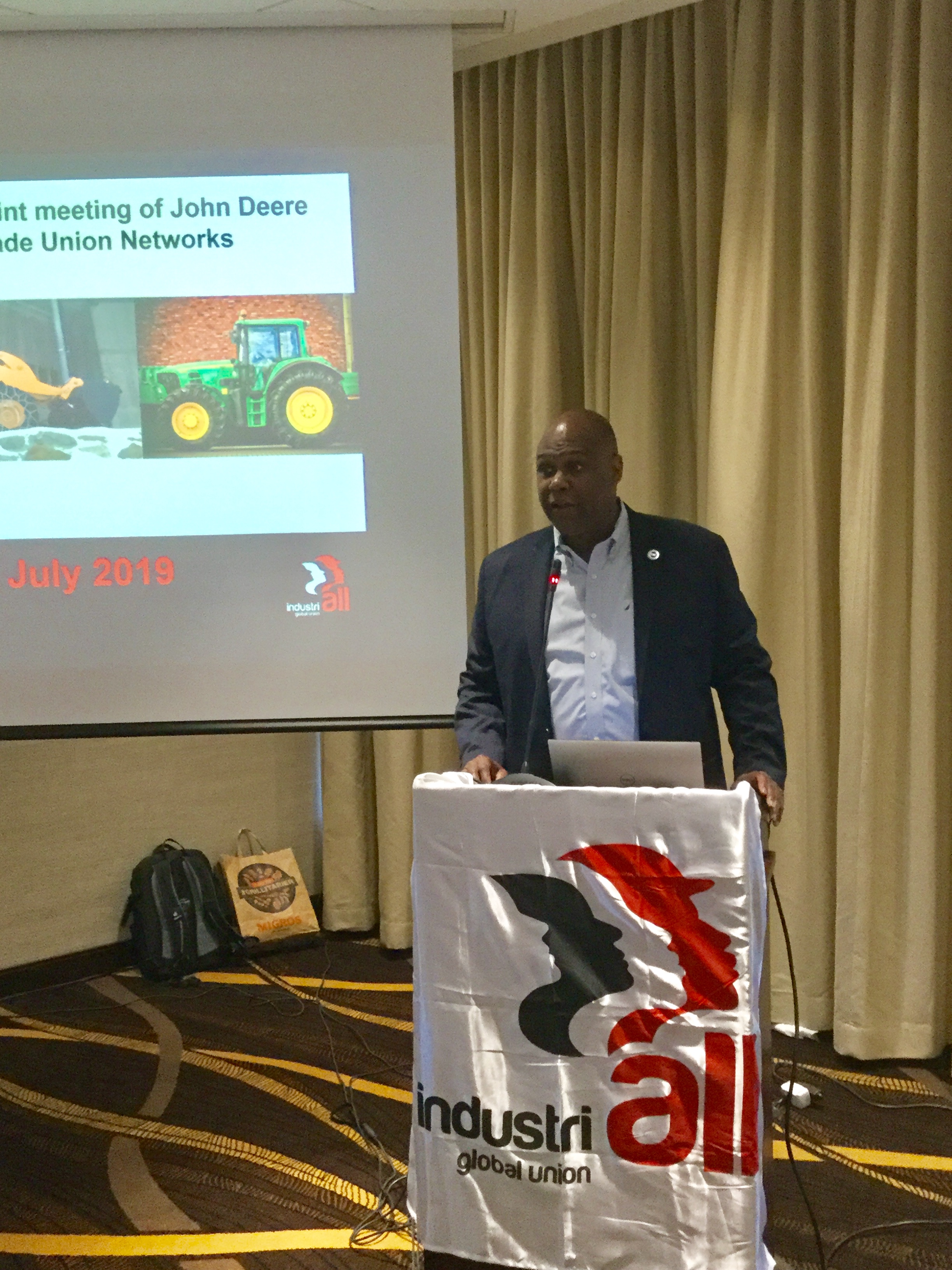Deere network discusses future strategies
The network discussed the situation in the different countries, especially the question of supply chain interruptions, actual and past collective bargaining in the different regions, countries, and plants.
The core topic of this network was the implementation of better health and safety measures. In addition, the meeting also focused on ways to open a dialogue with the corporate management over the possible terms of future dialogue. The delegates’ discussion revolved around green technologies and the future of heavy machinery in farming and construction, with respect to electrification and/or hybrid systems.
The European delegation reminded other countries that it would be helpful to integrate the countries, in the network, that are not on board yet.
Thomas Weber, administrative assistant, agricultural implement department, and his team informed the network about the latest developments in the USA, at a corporate level, but also about the situation in UAW. They also emphasized what they called the Striketober, the October 2021 strike, when many sites in the USA, namely in Agricultural Implement, especially at Deere, went on strike. Thomas delivered this address on behalf of the network chair, Charles Browning, UAW’s Vice President.
One of the many concerns that attendees had was how high global inflation rates were having an impact on ordinary workers’ purchasing power.
IndustriALL’s assistant general secretary, Christine Olivier, addressed the network, introducing the latest discussions in IndustriALL regarding its position on social dialogue with multinational corporations.
All participants agreed that it is important to further grow this network and that close cooperation with similar USA-located companies, namely Caterpillar and CNH, was instrumental. In addition, the network members proposed that the next network meeting possibly be held in person. Representatives reminded the meeting that all participating trade unions should strengthen the role of women in the sector, within the company, and in the network.
“Our sector, the agricultural implement segment of mechanical engineering, is a showcase of the double challenge that workers and trade unions are facing today: the greening of machinery and equipment as well as the greening of production patterns. This goes hand in hand with digitalization. Both developments require even better networking among the trade unions. We have to coordinate our efforts to make sure that this transition is a just transition. IndustriALL will do its best to pilot our affiliates through these changes,”
says Matthias Hartwich, IndustriALL director of mechanical engineering.

